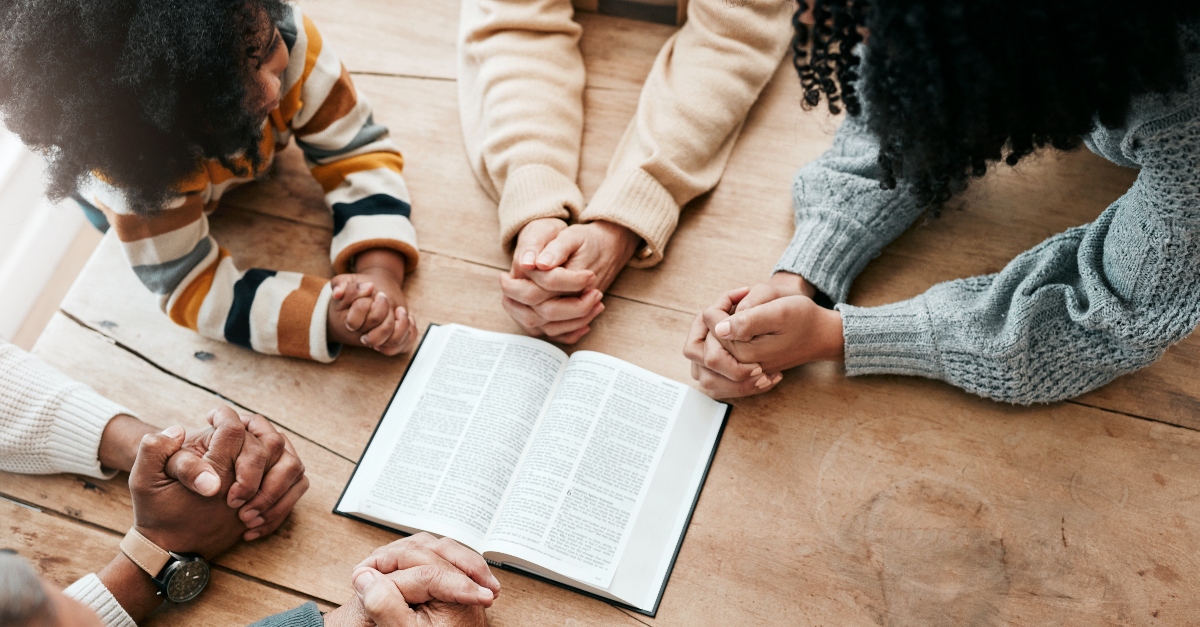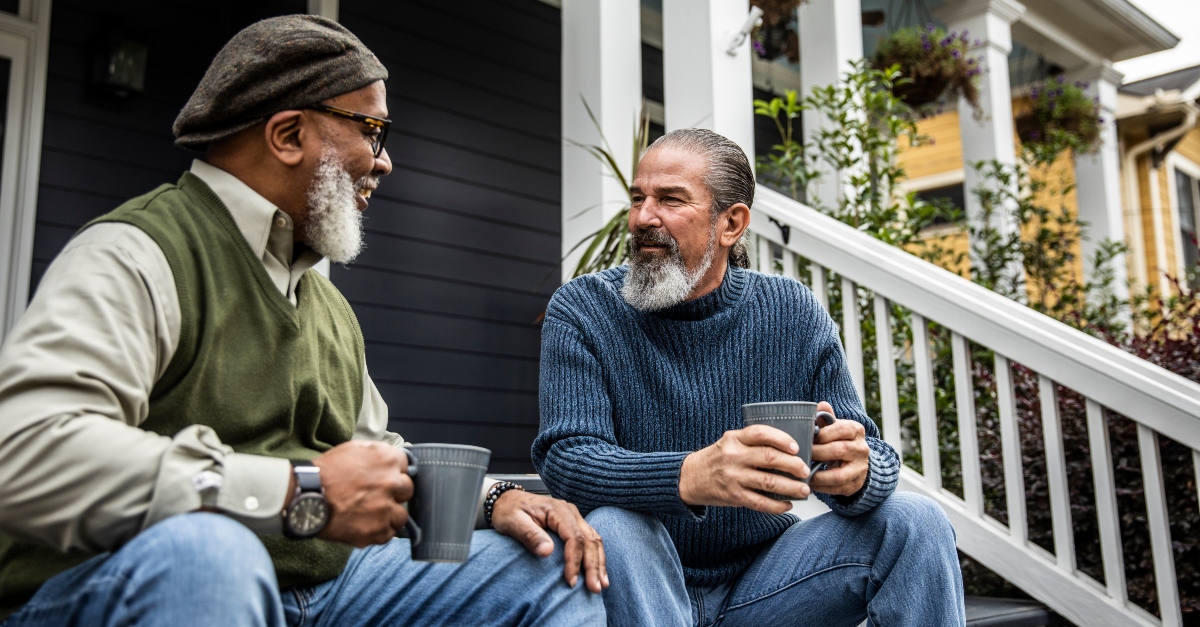Are Faith Choices in Adulthood a Reflection of Parenting?

CT had five fathers by the time he was 12 years old. Number 5 was a cruel and angry man who didn't like having the boy around. He had told CT's mother, "It's either me or the boy." It all came to a head a year later when Number 5 was drunk and decided to take out his frustration on CT by threatening him with a knife. CT ran like lightning, grabbed his coat and a few dollars he had saved, and at 13 years of age, left home for good. He hitchhiked hundreds of miles out of state to his grandparents in hopes that he could live with them. Though his grandparents took him in, they didn't show him much tenderness. He was more like a hired hand working on their farm, as they took advantage of his youth, strength, and vulnerability. He was on his own again at 16.
PJ was one of four children. His parents had a strong, loving marriage and were devoted Christians to whom family was a high priority. They faithfully attended church and homeschooled them. They deliberately taught their family from the perspective that God is at the center of all things. Along with regular instruction and outside experiences, they included Bible study, worldview, apologetics, and encouraged questions. No topic was off-limits. PJ was an excellent student who graduated high school and college with ease.
Both men got married. Today, one is a godly, devoted husband and father, the other is not a Christian, identifies as transgender, and is seeking transition.
Though CT and PJ are not their real names, they are real people I know personally. These are their true stories, however. (Of course, their stories are not over yet.) We'll return to them shortly, but who do you think is living as a Christian, and who is not, and why?
Our modern Christian narrative tells parents that if they do A, B, and C, their children will embrace the faith, largely blaming parents for today's youth leaving the church. Ultimately, it judges them by the choices their adult children make. Are we good parents if our children become believers and bad parents if they don't? Is this what the Bible says, or are we mixing in some secular ideas?
Modern Philosophy
Some of our modern parental advice seems to be rooted in two secular philosophies. First is "tabula rasa," which compares the mind to a blank slate. It "refers to a belief that at birth, all humans are born with the ability to become literally anything or anyone."
The second is Jean-Jacques Rousseau's idea that they are victim-based. He believed "that people were good prior to the development of civilization but have been corrupted by society." 1
Based on these ideas, parents have been encouraged to see their children as morally neutral. It is up to them to shape their children by providing the right environment and education; these actions will make them godly people. It implies our children are the product of our efforts. Therefore, if they do not become Christians, it is the parent's fault. But this is not what God says. Scripture denies that we are born blank slates. Rather it says we are born with a sin nature (Romans 3:23), which separates us from God. Each person must confess that Jesus is Lord and choose to submit their life to Him. We can't make that choice for anyone else.
But wait a minute! Aren't there Scriptures that hold parents responsible for their children's faith choices?
Parent's Responsibility

Deuteronomy 6:6-7 (ESV): "And these words that I command you today shall be on your heart. You shall teach them diligently to your children and shall talk of them when you sit in your house, and when you walk by the way, and when you lie down, and when you rise." Proverbs 22:6 (ESV) "Train up a child in the way he should go; even when he is old he will not depart from it."
As parents, we are given the important responsibility of training our children in the Lord. It is our job to disciple them, teach them, discipline them, and to "live a life worthy of our calling." (Ephesians 4:1) This is no small task! It requires a ton of time, energy, focus, self-discipline, and prayer.
But notice how it says, "Train up a child in the way he should go…" The word "should" implies that though we are to teach God's way to our children, they have the choice to apply it. It's also important to keep in mind that proverbs are probabilities, not absolutes. They make observations, generalizations, and even prophesy outcomes. As in the case of Proverbs 22:6, endless studies support how influential parents are in their children's lives and the lasting impact they have on their values. Even so, each person must willingly submit their will to the Lordship of Jesus Christ. It is not a guaranteed outcome that parents determine.
I recently saw a meme that read, "If my children go to Harvard and not to Heaven, I have FAILED them. If my kids get sports scholarships, but don't go to Heaven, I have FAILED them. if my kids win tons of awards but never hear, 'Well done, my good and faithful servant,' I have FAILED them!" These kinds of messages, though they may be well intended, oversimplify parenting and are not only untrue but deceptive and harmful.
When we stand before the Lord on judgment day, we will be judged according to our faithful obedience to Him, not on our children's outcomes. Did we honor and serve God with our lives? Did we do our part in training our children in the faith to the best of our ability? Do we continue to grow in our relationship with God as an example to them? We only have control over, and are responsible for, our own relationship with God. To claim otherwise doesn't call children to accountability and puts undue shame and burden on parents.
We Are Responsible for Our Own Actions

Deuteronomy 24:16 (NIV) "Parents are not to be put to death for their children, nor children put to death for their parents; each will die for their own sin."
Ezekiel 18:20 (ESV) "The soul who sins shall die. The son shall not suffer for the iniquity of the father, nor the father suffer for the iniquity of the son. The righteousness of the righteous shall be upon himself, and the wickedness of the wicked shall be upon himself."
These are not Bible verses Christians usually quote, but the principles remain and are important for us to understand. Each person will give an account for their choices (Romans 6:23). Knowing our children's need for salvation will affect how we parent them.
As a young mother, I remember the day I realized that we are all born with a sinful nature that we express through self-centered tendencies. I was excited for my eight-month-old daughter and me to meet our new neighbor and her 18-month-old toddler. Our babies sat on a blanket on the front lawn in front of us as we chatted. Out of the corner of my eye, I saw my precious (innocent!) baby girl pinch her toddler for no reason. I was horrified! Fortunately, my neighbor didn't notice. I figured it was a fluke until I saw her do it unprovoked a second time! I quickly picked up my daughter to keep her from pinching the little girl again. To my knowledge, no one taught her how to pinch (her brothers hadn't been born yet)! She figured that out all on her own.
I felt ashamed. I wanted to excuse or justify her behavior. I felt responsible that my daughter would act that way. I just couldn't believe it. I had to learn to see her, and later my two sons, as individual souls, separate from me, who needed to be discipled and trained in the faith.
Community
We thrive when we have lots of healthy relationships. It seems like we put too much pressure on the nuclear family. Obviously, the majority of responsibility for raising children falls on the parents, but children need and benefit from the input of other adults as well. The inspiration from a cool aunt, the unconditional love and delight from a grandparent, the encouragement and validation from a teacher, youth leader or coach, are tremendously instrumental in their formation. Plus, parents need the help and support.
It can be overwhelming to manage the daily demands of raising a family when everything is going well. But there are times when it doesn't take a lot for the fragility of the nuclear family to be exposed. Equally, it doesn't take a lot from our support system to help create the balance needed. We are social beings, and we thrive when we are surrounded with a diverse, multigenerational community. I have seen the positive influence of mentors in the lives of my children. And I am so grateful for experienced parents who encouraged me when I struggled with parenting. I still remember and use their wisdom today. We need to extend that support to families in our circles, especially those who are hurting.
How to Support Parents of Prodigal Children

Romans 12:15 (NIV): "Rejoice with those who rejoice; mourn with those who mourn."
Many Christian parents who have loved their children sacrificially, and invested deeply in their growth and training, have children who are not believers and/or have chosen ungodly lifestyles. I used the recent phenomenon of transgenderism, but I could have just as easily chosen someone with a drug problem, or criminal offense, etc. Whatever the circumstance, parents of prodigals are hurting.
As a church, we need to rally around these families, listen without condemnation, grieve with them, and support them in prayer. All parents have made mistakes. It is important to encourage each other to repent and ask for forgiveness when God brings those mistakes to mind. But we must not carry the blame for our adult children's choices. God understands the prodigal parent's heart, as He has many lost children, and His heart aches for them to return home, too.
Who Grew Up to Be a Christian?
Based on their upbringings, one would naturally expect PJ to be the Christ-follower and CT to be the unbeliever. But that is not the case. Today, CT is a devout Christian. As an adult, he contacted his mother and his step-dad (yes, the very one who threatened him with a knife), and, with God-honoring boundaries, developed and maintained a relationship with them. PJ has rejected the Lord and his family. His parents have found a support group of Christians facing similar circumstances who are dedicated to navigating the delicate balance of truth and love.
Truly, it is a painful reality that our efforts cannot guarantee our children's right choices or their salvation. But parenting in a way that provides them a Christ-centered, spiritual and moral foundation is a holy calling; laying down our lives to fulfill it is honoring to God, regardless of the outcome.
Erin A. Barry is an author, speaker, counselor, and educational consultant. With a bachelor’s degree in education and an NCCA master’s of arts in clinical Christian counseling, Erin has an advanced certification in sexual therapy and is working on her doctorate in Christian counseling. She is the author of, Yes, You Can Homeschool! The Terrified Parent’s Companion To Homeschool Success. She and her husband, Brett, are founders of The Home Educated Mind, a Christ-centered community dedicated to providing materials and support for Christian parents.
Originally published August 01, 2024.







